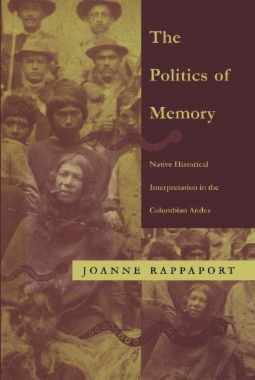How does a culture in which writing is not a prominent feature create historical tradition? In The Politics of Memory, Joanne Rappaport answers this question by tracing the past three centuries of the intellectual history of the Nasa—a community in the Colombian Andes. Focusing on the Nasa historians of the eighteenth through twentieth centuries, Rappaport highlights the differences between "native" history and Eurocentric history and demonstrates how these histories must be examined in relation to the particular circumstances in which they were produced.
Reconsidering the predominantly mythic status of non-Western historical narrative, Rappaport identifies the political realities that influenced the form and content of Andean history, revealing the distinct historical vision of these stories. Because of her examination of the influences of literacy in the creation of history, Rappaport’s analysis makes a special contribution to Latin American and Andean studies, solidly grounding subaltern texts in their sociopolitical contexts.
- Contents
- About the Series
- Preface to the Duke Edition
- List of Illustrations
- Preface
- 1. Introduction: Interpreting the Past
- Part I. The Creation of a Chiefly Ideology: Nasa Historical Thought under Spanish Rule
- 2. The Rise of the Colonial Cacique
- 3. The Birth of the Myth: Don Juan Tama y Calambás
- Part II. From Colony to Republic: Cacique and Caudillo
- 4. The Chiefdom Transformed: The Nineteenth-Century Nasa
- 5. From Sharecropper to Caudillo: Manuel Quintín Lame
- Part III. Contemporary Historical Voices
- 6. The Cacique Reborn: The Twentieth-Century Nasa
- 7. Julio Niquinás, a Contemporary Nasa Historian
- 8. Conclusion: Narrative and Image in a Textual Community
- Glossary
- Notes
- References
- Index

